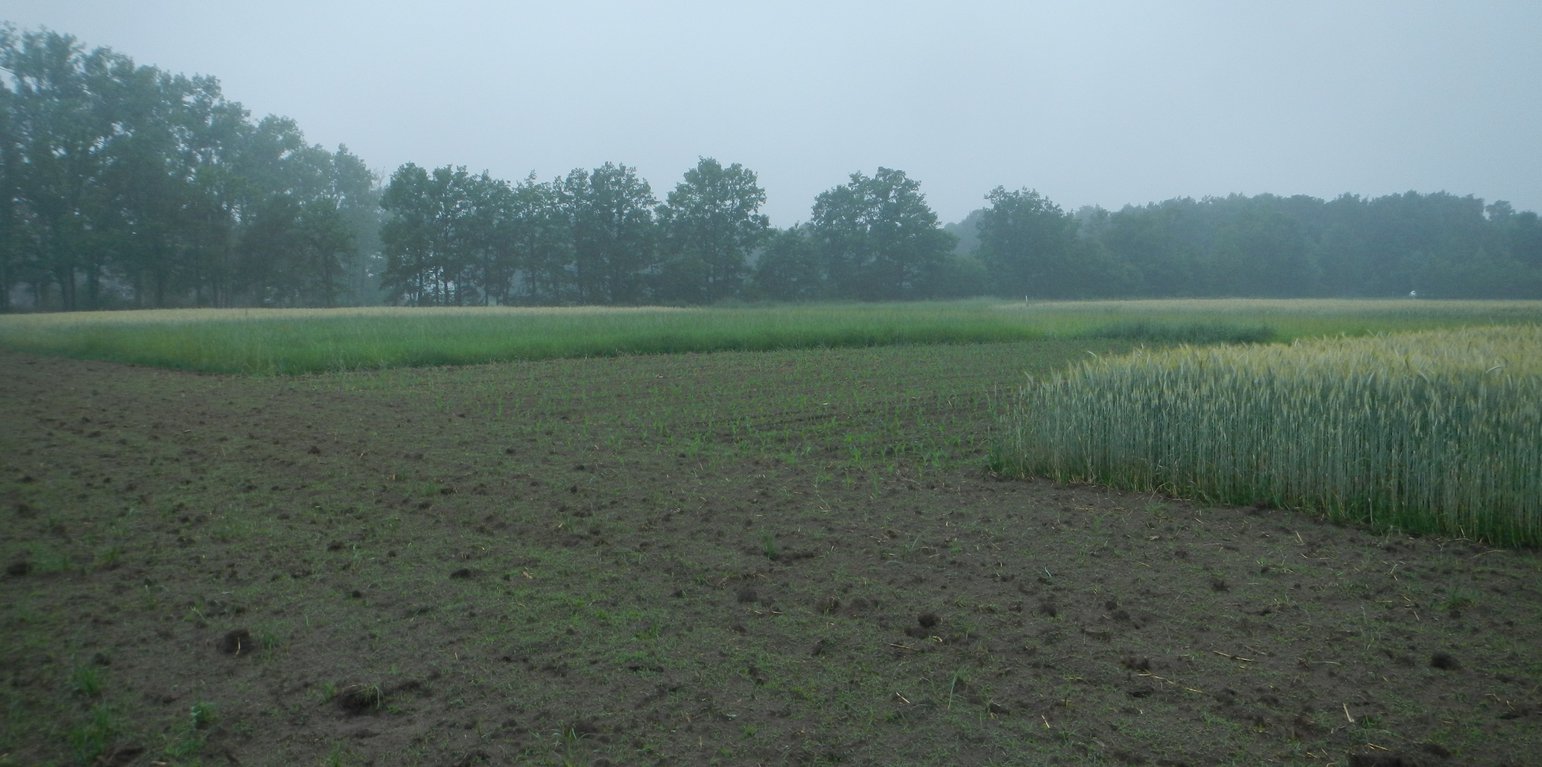



Belgium has favourable conditions for agriculture: moderate temperatures, evenly distributed precipitation, and a long growing season. Today, ~28 % of the country is under cultivation. Farming engages only 2 % of the total labour force, but it produces sufficient quantities to make Belgium a net food exporter. About 2/3 of the farms are intensively cultivated units of less than 10 hectares (25 acres).
The Functional Agro-Biodiversity (FAB) measure on avoiding monocultures and implementing crop rotations was established on a trial field in Belgium, Geel. The region is characterised by sandy soil and the main crop is maize, mostly in monoculture. Main reasons to stick in the monoculture of maize are the lack of knowledge of the alternatives, specifically on feed value of the crops and storage of the harvested product.
In this trial field different crops are placed in small fields (18 x 25 m) next to each other. The crops are always chosen to be part of the fodder for the dairy cattle. The different root types ensure a better soil structure. The diversity in plants make the field less susceptible for diseases and weeds and give a better uptake of the nutrients that are available in the soil. After one year, we already saw a 50% reduction in weeds compared to the monoculture maize.
The soil is less degraded and even soil carbon sequestration is possible. The latter is not only beneficial for climate regulation but also provides a spongy soil which can capture the water more easily, but also stores the water and makes it available to plants in drier periods. This makes the land more resilient to extreme weather conditions. The difference in sowing time and harvesting time give a higher range in choice for the type of cover crops and give less chance for weeds to develop in the same way year after year. In the reference year 2017 (maize in all the fields), we already saw an additional yield of 10% where crop rotation had been implemented.
The compilation of this SLM is a part of the European Interreg project FABulous Farmers which aims to reduce the reliance on external inputs by encouraging the use of methods and interventions that increase the farm’s Functional AgroBiodiversity (FAB). Visit www.fabulousfarmers.eu and www.nweurope.eu/Fabulous-Farmers for more information.
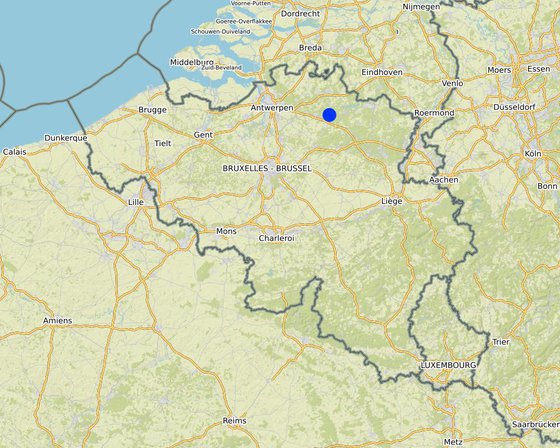
ទីតាំង: Geel, Antwerpen, ប្រទេសបែលហ្ស៊ិក
ចំនួនទីកន្លែងបច្ចេកទេស ដែលវិភាគ: មួយកន្លែង
ការសាយភាយនៃបច្ចេកទេស: អនុវត្តនៅកន្លែងជាក់លាក់មួយ/ ប្រមូលផ្តុំនៅតំបន់តូចៗ
តើស្ថិតក្នុងតំបន់ការពារអចិន្ត្រៃយ៍?: ទេ
កាលបរិច្ឆេទនៃការអនុវត្ត: 2016
ប្រភេទនៃការណែនាំឱ្យអនុវត្តន៍៖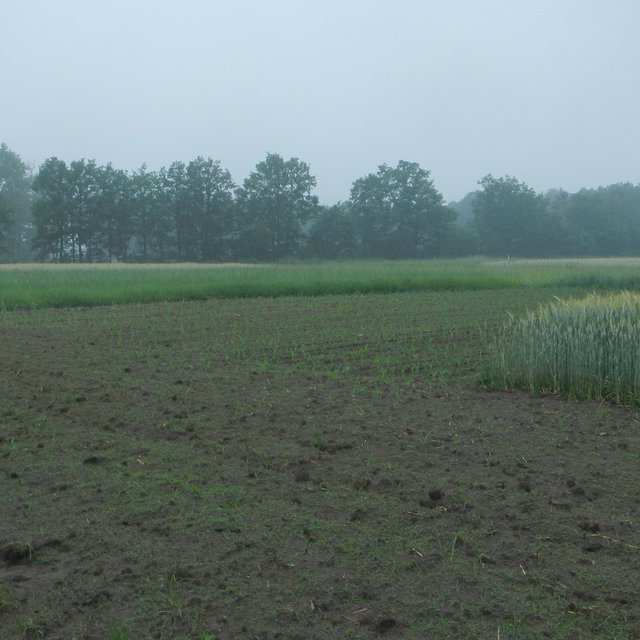
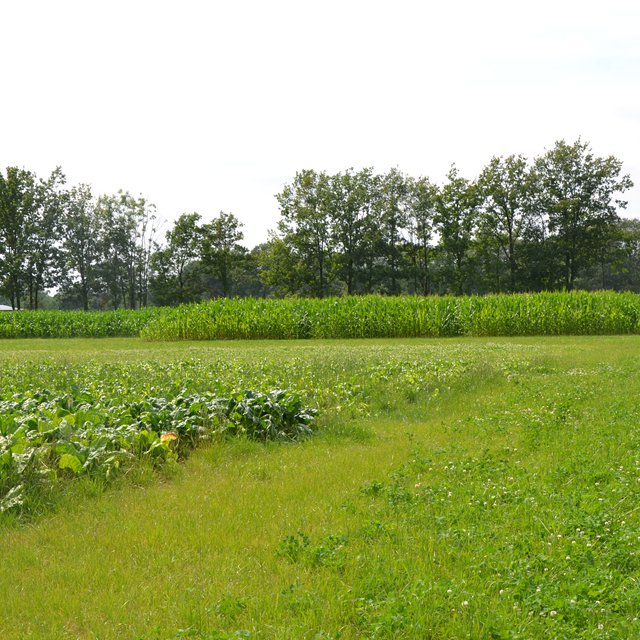

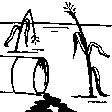
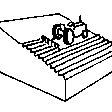
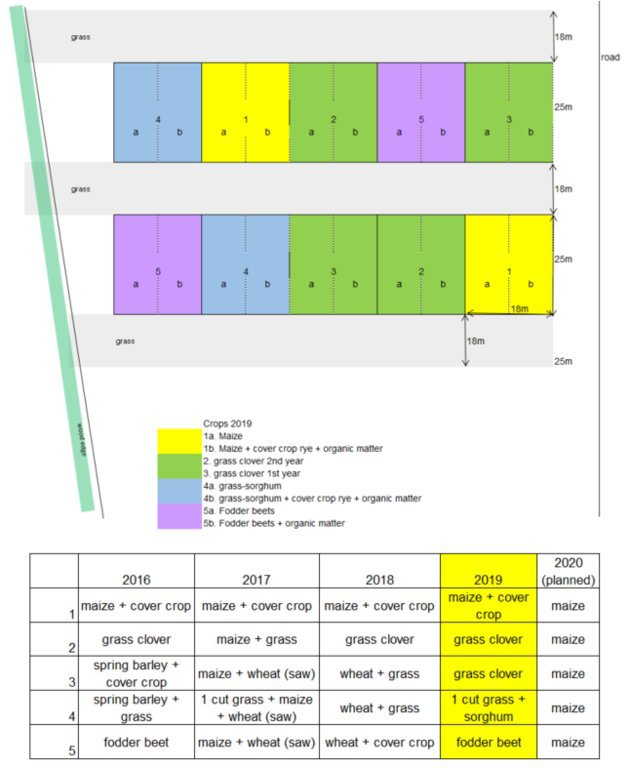
| បញ្ជាក់ពីធាតុចូល | ឯកតា | បរិមាណ | ថ្លៃដើមក្នុងមួយឯកតា (€) | ថ្លៃធាតុចូលសរុប (€) | % នៃថ្លៃដើមដែលចំណាយដោយអ្នកប្រើប្រាស់ដី |
| ផ្សេងៗ | |||||
| Estimate of all-inclusive costs for a 4 yr rotation (workforce/equipment/material) | ha/4yrs | 1,0 | 2000,0 | 2000,0 | 100,0 |
| ថ្លៃដើមសរុបក្នុងការបង្កើតបច្ចេកទេស | 2'000.0 | ||||
| ថ្លៃដើមសរុបក្នុងការបង្កើតបច្ចេកទេសគិតជាដុល្លារ | 2'197.8 | ||||
The crops are less susceptible to pests. The damage caused (loss of yield) is less than the cost of protection.